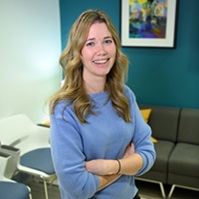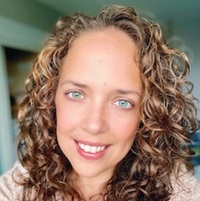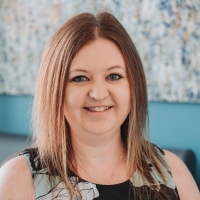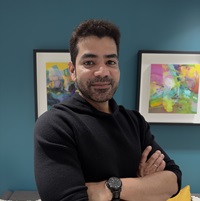Staff and Students
To reach any of our staff or students please email cph@dal.ca or call 902-494-3219
Co-Directors

Shannon Johnson, PhD (she/her)
I am an Associate Professor in the Department of Psychology and Neuroscience, Director of Clinical Training for the Clinical Psychology PhD Program, and Co-Director of the CPH. I oversee the research strategy of the CPH and work closely with Dr. Debbie Emberly to develop funding applications, and supervise student research and program evaluation projects in the centre. I have expertise in a wide range of assessment activities across the lifespan, with specific interests in neuropsychological and adult autism spectrum disorder assessments. My intervention interests include supporting those with attention, learning, and neurodevelopmental differences, cognitive impairment, and associated mental health difficulties.

Alissa Pencer, PhD (she/her)
I am a Senior Instructor within the Departments of Psychology and Neuroscience and Psychiatry, Field Placement Coordinator for the Clinical Psychology Program, and Co-Director of the CPH. I oversee many of the clinical aspects of CPH including matching of trainees to supervisors and clients to trainees. As I work from a scientist-practitioner model, my research and clinical interests are closely aligned and inform each other. Originally having had a developmental focus in my training, I now take a lifespan perspective with a particular interest in adolescents and emerging adults. I strive to incorporate justice, equity, diversity and inclusion principles in my research, teaching and supervision, and clinical practice. My clinical and research interests and expertise are in the areas of e-mental health, trauma-based therapies, prevention and treatment of anxiety and mood disorders, obsessive-compulsive and related disorders, severe mental illness, and substance use. I provide some clinical supervision of assessment and intervention at CPH.
Psychologists/Clinical Supervisors
Cheryl Aubie, PhD (she/her)
Co-Director of Training for Residency Program
Working both at CPH and in private practice, I provide therapeutic support for individuals, couples and families of all genders and sexual identities facing life’s most painful and emotional challenges, such as mental health issues, stressful life transitions, grief, relationship strain, parenting concerns and separation/divorce/co-parenting issues. Using an emotion-focused and attachment framework, I am especially interested in helping couples and families resolve complex relational difficulties. I offer emotion-focused skills training (EFST) to parents struggling with a mental health concern in their child (of any age, including adults) and provide workshops in EFST to clinicians internationally. I also have an expertise in working with individuals with eating disorders, body image issues and disordered eating and am especially passionate about clinical training and process-oriented supervision.
Susan Battista, PhD (she/her)
I have worked with children, adolescents, and adults in numerous settings including hospitals, universities, and school boards. I currently work in private practice and at the CPH. I am trained in Cognitive Behavioural Therapy (CBT), Motivational Interviewing (MI), and Acceptance and Commitment Therapy (ACT). Although I work with clients presenting with various concerns, I have a specific interest in Concurrent Disorders (co-occurring mental health and substance use disorders).
Lynn MacKenzie, PhD (she/her)


April Sullivan, PhD (she/her)
I am a clinical developmental psychologist and supervisor at Dalhousie Centre for Psychological Health. I provide supervision in evidence-based assessment and interventions for children, youth, and families with a variety of presenting concerns (e.g., adverse life events and trauma; mood and anxiety). I have experience in assessment and treatment of neurodevelopmental disorders across the lifespan, family-based interventions, and third wave cognitive behaviour therapies, including acceptance and commitment therapy and dialectical behaviour therapy. I support students to consider how early relationships, environmental influences, and social and cultural factors shape individuals’ emotion regulation, social functioning and personal well-being. With this understanding, students are encouraged to tailor evidence-based approaches to help individuals and families accomplish their goals. I take a developmental and relationally based approach to supervision where I encourage trainees to reflect on their competencies and areas for growth.
 Rebecca Tucker, PhD (she/her)
Rebecca Tucker, PhD (she/her)
I am an Instructor in the Department of Psychology and Neuroscience where I teach undergraduate-level courses related to development, psychopathology, and research methods, as well as providing supervision at CPH and working part-time in private practice. Across my supervision and my own clinical work, I provide intervention services for clients across the lifespan who are seeking support for a wide variety of presenting concerns (e.g., mood disorders, anxiety disorders, obsessive-compulsive & related disorders, body focused repetitive behaviors, substance use disorders, post-traumatic stress disorder, insomnia). Broadly speaking, I would describe my theoretical orientation as cognitive-behavioural. As such, I primarily use Cognitive-Behavioural Therapy, Acceptance and Commitment Therapy, and the Unified Protocol, as well as other specific cognitive-behavioural protocols (e.g., Behavioural Activation, Cognitive Processing Therapy, Exposure and Response Prevention). However, I have some experience with other approaches and integrate them into my work as needed (e.g., Motivational Interviewing). For assessment, I focus primarily on psychoeducational and ADHD assessment with adolescents and adults, although I sometimes provide more general psychodiagnostic assessments as well.
Julie Wershler, PhD (she/her)
 I am a Registered Psychologist and Clinical Supervisor at the CPH and also work part-time in private practice. At CPH, I support students in taking a client-centered approach to consider the many factors that may be affecting someone’s functioning, and to collaboratively develop treatment goals and recommendations that are meaningful for clients. For assessment, I supervise psychoeducational, ADHD, and mental health assessments for school-age children, teens, and adults, with a focus on helping clients and families understand why they may be experiencing presenting symptoms or concerns and determine helpful next steps. For therapy, my primary approaches include Acceptance and Commitment Therapy (ACT), emotional regulation skills, and Cognitive-Behaviour Therapy for teens and adults.
I am a Registered Psychologist and Clinical Supervisor at the CPH and also work part-time in private practice. At CPH, I support students in taking a client-centered approach to consider the many factors that may be affecting someone’s functioning, and to collaboratively develop treatment goals and recommendations that are meaningful for clients. For assessment, I supervise psychoeducational, ADHD, and mental health assessments for school-age children, teens, and adults, with a focus on helping clients and families understand why they may be experiencing presenting symptoms or concerns and determine helpful next steps. For therapy, my primary approaches include Acceptance and Commitment Therapy (ACT), emotional regulation skills, and Cognitive-Behaviour Therapy for teens and adults.
Health Outcomes Scientist & Research Lead
 Debbie Emberly, PhD (she/her)
Debbie Emberly, PhD (she/her)
Coming from a career in service delivery, health service development and evaluation within the public mental health and addictions sector (child and adolescent focus), my role at the CPH is dedicated to measuring, reporting and understanding the impact of the care offered at the CPH on the clients, students, and community partner organizations with whom we work. At the CPH we use a measurement informed care approach where the tools that assist in shared decision making regarding the best care for the individual client are also used to demonstrate the impact of the work. We have a responsibility to demonstrate and share the effectiveness of the care that we provide and capture the intended and unintended consequences of our work, e.g., improving team morale in community. From an evaluation lens, using both qualitative and quantitative methods I am interested in partnering to tell the story of the CPH, of our clients, of our students and of our community. As research lead, my role involves developing innovations in research, supporting key initiatives (e.g., culturally adapted CBT), and seeking funding and research partnerships to advance our goals of culturally informed and low barrier access to care.
Storm Balint (she/her): PhD Student: Program Evaluation Internship
Social Workers
Janelle Duguay, BSW SWC (she/her)
Case Manager

Jesse Hatch, BA (they/them)
Service Navigator
I am primarily responsible for managing referral processes at CPH. Approaching this work through a lens of supporting whole health, I enjoy working collaboratively with community partners to determine fit and coordinate community-based resource direction. I also provide service navigation consultations to student clinicians and brief, solution-focused support to clients. Having spent several years working in housing, harm reduction, and supportive employment, I seek to apply principles of trauma-informed, client-centred care, and cultural humility in all aspects of my approach to working with people. Currently, I am pursuing my Master of Social Work (MSW) degree at Dalhousie University, with a focused inquiry into the role of protective factors in facilitating trauma recovery.
Clinic Manager
Varun Singh, Master of Technology, Entrepreneurship & Innovation (he/him)
 With a professional background spanning the service industry, I have worked across sectors such as aviation, retail, and early childhood education. My experience includes managing teams, fostering interdepartmental collaboration, and driving operational efficiency. In my role at CPH, I oversee budgeting and financial management, ensuring smooth administrative operations while supporting the centre’s strategic goals. I manage the clinic’s daily operations, ensuring compliance with policies and procedures while providing support to staff and students. This includes overseeing client and staff scheduling, electronic medical records, and administrative processes. I collaborate closely with key university departments and attend meetings with government officials as needed.
With a professional background spanning the service industry, I have worked across sectors such as aviation, retail, and early childhood education. My experience includes managing teams, fostering interdepartmental collaboration, and driving operational efficiency. In my role at CPH, I oversee budgeting and financial management, ensuring smooth administrative operations while supporting the centre’s strategic goals. I manage the clinic’s daily operations, ensuring compliance with policies and procedures while providing support to staff and students. This includes overseeing client and staff scheduling, electronic medical records, and administrative processes. I collaborate closely with key university departments and attend meetings with government officials as needed.
Student Staff Positions
Student Intake Workers
Intake workers review referral forms and relevant documentation before scheduled intakes to ensure thorough preparation. During initial interviews, they explain the CPH structure, discuss confidentiality limits, clarify referral reasons, and gather essential background details such as client identity, symptoms, goals, and appointment preferences. Conducting risk assessments helps identify immediate safety concerns like suicidal ideation, with safety plans developed as needed. Findings are summarized, case suitability is evaluated, and notes are documented in client files with critical concerns flagged. Collaboration with the intake team occurs through weekly meetings focused on case discussions and service recommendations. Clients are updated on their intake status, informed about community resources, and supported through the consent process when external communication is required. cph@dal.ca
Front Desk Assistants
Alex MacKay (she/her), Tasia MacLean (she/her), Jessica Peterson(she/her)
Our Front Desk Assistants play a vital role in the operations of the clinic. Their responsibilities include booking and rescheduling appointments, sending confirmation emails, and setting up reminders. They follow up with referral providers, physicians, and clients for additional information via email, fax, and phone. The Front Desk Assistants also make calls to clients on the waitlist to update their information and provide administrative support for assessments. They are responsible for maintaining accurate documentation and handling confidential information with sensitivity and care. cph@dal.ca
Graduate Student Clinicians
- Charlie Aelick
- Isabella (Bella) Bossom
- Brianna Boyle
- Mya Dockrill
- Laura Elliott
- Mikaela Ethier-Gagnon
- Sarah Haggett
- Katherine (Katie) Hoferek
- Blair Irish
- Greta Jang
- Madison MacLachlan
- Bianca Matthews
- Nick Murray
- MacKenna Pattison
- Colin Pridy
- Brannon Senger
- Justin Shimuzu
- Jan Slattery
- Amelie Tanner
- Jacob Van Haaften
- Grace Wang
Psychology Residents
- Leigh Dunn
- Michael Nash
- Seema Sharma (Psychiatry)

